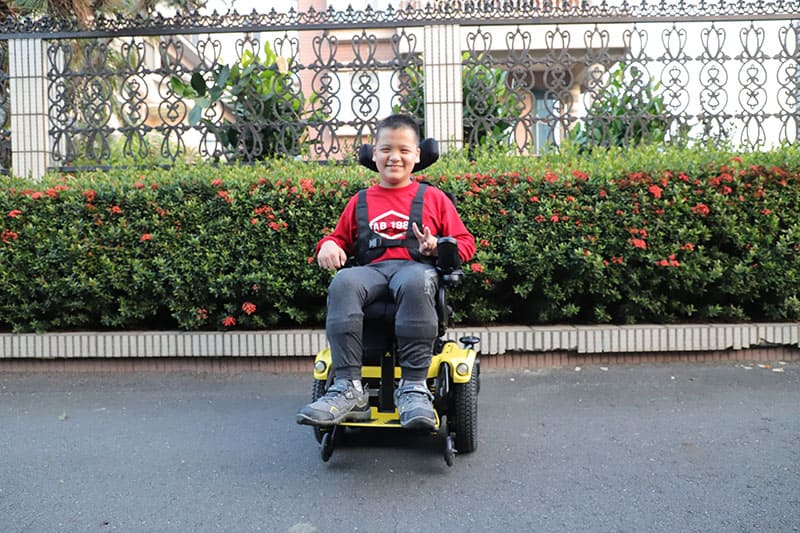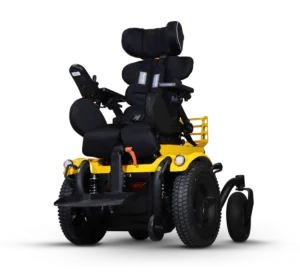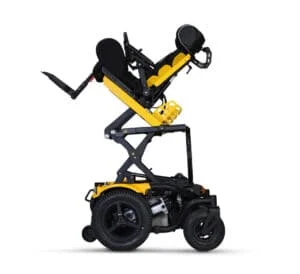In the wake of our recent launch of Karma’s most advanced pediatric power wheelchair; Kameleon, we want to walk parents through the different stages of considering a power wheelchair for their children.
Independent mobility is important in the development of cognitive and psychosocial skills. If a child is not mobile, they may experience lack of motivation and isolation from their peers. That is why early intervention for mobility is critical. But how do you know if manual mobility or power mobility is suitable for your child or when the most suitable time to make the transition from manual to power? Generally, we consider two factors: physical status and end goals.

Leo, KARMA’s first Kameleon test driver! Learn more about his experience with Kameleon and what adjustments were made to accommodate him.
To examine the physical status, the child should undergo a full clinician evaluation to determine what kind of specialist equipment your child needs.
Typically, if a child meets one or more of the following criteria, power mobility may be suggested:
- Shows insufficient strength, range of motion, or endurance for manual propulsion.
- Manual propulsion is painful or not functional.
- Manual propulsion increases muscle tone and/or postural asymmetry.
- Is at risk of pressure injuries and requires power positioning functions.
- Has a progressive disability, such as muscular dystrophy, and the use of power mobility is beneficial in the future.
( 1Seating and Wheeled Mobility, 2018)
As for the end goals, if you expect your child to move farther and move more efficiently, to interact with the environment more, or to catch up and play with their peers, it may be a good time to transition from manual to power mobility. Even if the child is capable of using manual propulsion, therapists tend to recommend a mobility device that not only meets the child’s basic needs but also the anticipated needs.
From the therapists’ point of view, it is always recommended to conserve energy for important activities, instead of exhausting the child from physical activity.
1Michelle L. Lange, Jean Minkel, Seating and Wheeled Mobility: A Clinical Resource Guide, 2018
Featured Product:
Sneak peek at Kameleon before our official launch. Approx. 2021 Q4

Ken Chen, PT, MS, ATP
Global Product Training and Development Manager
Ken has 10 years of experience as a physical therapist in the area of wheelchair seating/mobility. Ken took on the role of Product Manager for Karma in 2012 and was responsible for the research on user needs and market trends for product development. In 2015, Ken got certified Assistive Technology Professional (ATP) accredited from RESNA.
In 2018, Ken was transferred to the sales department in Taiwan to provide custom products and services for disabled users. He has provided a variety of continuing education courses and lectures in the area of seating/mobility for Taiwanese therapists.
In 2020, Ken was appointed as Product Educator in Karma Group. Now he provides a variety of product training and clinical education courses to the global dealers, distributors, and therapists with Karma’s clinical consultant Pau-Lee.

 Global
Global
